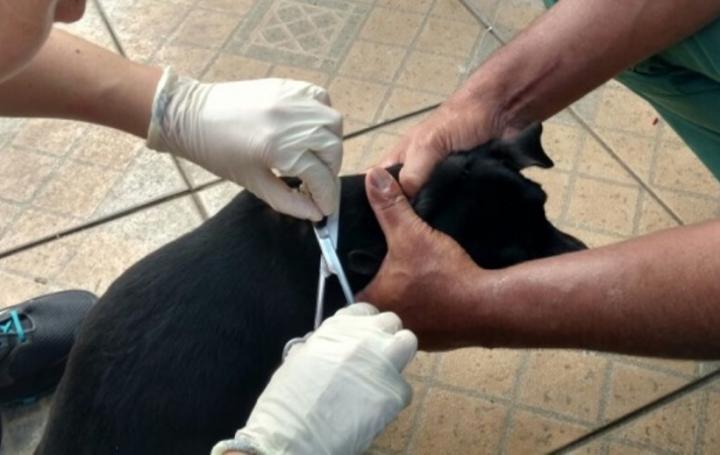
Credit: Monica E. Staniek, 2019
The protist parasite Leishmania infantum can alter its host’s odor to attract female sand flies, which transmit the pathogen, according to a study published March 18th in the open-access journal PLOS Pathogens by Monica Staniek of Lancaster University and Gordon Hamilton of Lancaster University.
Visceral leishmaniasis leads to thousands of deaths worldwide every year. In South America, the disease-causing pathogen, L. infantum, is transmitted from dogs to humans through the bite of infected female sand flies, but not male sand flies. Past research has suggested that the odor of infected rodents is altered by the parasite, making them more attractive to the insect vector. In the new study, Staniek and Hamilton assessed whether infection affects the attractiveness of dogs, which are the natural reservoirs for human infection.
The authors collected odors from infected and uninfected dogs residing in a Brazilian city, where visceral leishmaniasis is endemic. In contrast to males, female sand flies were more attracted to the odor of infected dogs than uninfected dogs. According to the authors, the results provide strong evidence that parasites manipulate the odor of their hosts, potentially enhancing infection and transmission opportunities for the pathogen.
The authors add, “This demonstration of the parasite’s manipulation of its host’s odor, to potentially improve its transmission opportunity, will help us to understand the epidemiology of the disease, improve existing control strategies as well as develop new methodologies for control and diagnosis.”
###
Peer-reviewed; Experimental study; Animals
In your coverage please use this URL to provide access to the freely available article in PLOS Pathogens: http://journals.
Citation: Staniek ME, Hamilton JGC (2021) Odour of domestic dogs infected with Leishmania infantum is attractive to female but not male sand flies: Evidence for parasite manipulation. PLoS Pathog 17(3): e1009354. https:/
Funding: MS was funded through a Lancaster University, Division of Biomedical and Life Sciences PhD Studentship. JGCH received funding (104250/B/14/Z) from the Wellcome Trust (https:/
Competing interests: The authors have declared that no competing interests exist.
Media Contact
PLOS Pathogens
[email protected]
Related Journal Article
http://dx.




